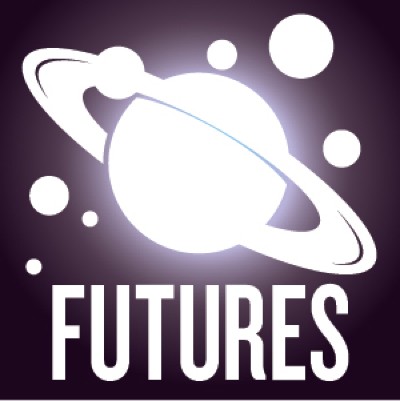As Arin approached Grimgor’s lair, he couldn’t help but feel a sense of unease. The stories he’d heard about the creature and its terrible wrath echoed in his mind, yet he steeled himself and stepped forward.
To his surprise, Grimgor the Condemned wasn’t quite as fearsome as he had been led to believe. In fact, Grimgor was a bit of a mess — the kernel it wore was dull, its structure was tattered. It presented a rather pitiful sight.
“Hey there, young adventurer!” Grimgor called out as Arin moved closer. “I couldn’t help but notice that you seem to be carrying a bit of weight. Perhaps you’d like to take a load off and come in for a spot of tea?”
Arin was taken aback. “Tea?” he repeated, unsure if he had heard the monster correctly.
“Yes, TEA!” Grimgor said eagerly. “Thermal Electron Affinity. I have some lovely leptons that I’ve been saving for a special occasion. And while we’re at it, perhaps we could talk about this whole ‘slaying the dragon’ business. I’m sure there’s a way we can come to a mutually beneficial arrangement.”
This was not what Arin expected. He was sceptical, but he couldn’t help but be curious about the creature’s sudden hospitality.
He followed Grimgor farther into the storm eye of the star, and was surprised to find a neat little space filled with a comfortable dose of neutrinos. Grimgor bustled about, bringing out a nice dish of subatomic goo.
“So, about this arrangement …” Grimgor began, settling itself into a cosy corner. “I was thinking that perhaps you could help me out with a little problem I’ve been having.”
“And what’s that?” Arin asked warily.
“Well, as you can see, I’m not capable of doing all those horrifying things I am accused of,” Grimgor said, its eyes gleaming. “Those poor missing souls. I’m civilized like you. I cannot bear the thought of feeding on the suffering of other intellectuals. I’m simply being persecuted for being different. It’s a witch hunt. A sham. A hoax.”

Read more science fiction from Nature Futures
Arin’s hand rested on the hilt of his blade, but he found that he couldn’t quite bring himself to draw it. This was not his first expedition, yet Grimgor had a way of making him feel strangely comfortable.
“So you want me to spare your life?”
“I wouldn’t ask for that. If he dies, he dies,” Grimgor said suddenly. “However, I have something that I must show you before you end my miserable life. It’s much more important than any of us.
“See, I’ve been guarding it for god knows how many orbital cycles, and I’ve been looking for someone worthy to pass it on to. It’s the circle of life, and it moves us all.”
Arin raised an eyebrow. “The circle of life?”
“Yes, yes,” Grimgor said, nodding eagerly. “It’s a circle, an orb, and sometimes, a complete dumpster of fire. It’s almost not from our dimension.”
“So what is it exactly?” Arin was more confused than curious.
“Tell me, dear adventurer,” Grimgor said, “how’s your biology? How well do you know the birth of life?”
Arin took a sip of Grimgor’s goo, finding it surprisingly palatable. “Like mating? How the opposite ones get …” he started to ask, but Grimgor cut him off with a sigh of disgust.
“No, like the origin of life. The very beginning of our organic existence,” Grimgor explained.
“Oh,” Arin felt embarrassed. “Well, I mean, I took the course, but my professor was a real …”
“Alright,” Grimgor interrupted. Arin could almost feel its disappointment. “There are basically two schools of thought: panspermia and abiogenesis. But they’re not that different, if you hear me out. In the beginning, the space was filled with rays at all spectrums, from microwave to γ-rays. From this sea of randomness, a pair of harmonics arose. The stars witnessed the first sympathetic resonance, and it oscillated through the entire Universe.
“Oh, the undefeatable mighty pulsars, broadcasting the news to all the children of the stardust. Travelling at the speed of light, life always finds a way. C-beams glitter in the dark near the Tannhäuser Gate. All those moments will be lo …”
“OK, pal,” Arin interrupted Grimgor. “That’s enough.”
“But aren’t you curious about our designer?” Grimgor asked, seeming a little annoyed. “Or the coincidental lightning, if you prefer. I’ve found it. It’s right here.”
Arin looked in the direction that Grimgor was pointing and saw an orb of noisy strings wriggling non-stop on the electromagnetic plane. It was the ugliest thing he had ever seen.
“It is a bit shabby-looking, I’ll admit, but I assure you it’s quite powerful,” Grimgor said. “And I’ll give it to you, Arin, if you promise to guard it and keep it safe.” Grimgor grabbed the orb and held it out enticingly. “It’s yours for the taking, Arin,” it said, its voice dripping with false kindness.
Arin hesitated, eyeing the orb suspiciously. But Grimgor’s sincerity was difficult to ignore.
Arin narrowed his eyes, his mind racing. Could he really trust this wyrm? Something about Grimgor’s tone and demeanour seemed off.
But the lure of the orb was too strong. It was addictive just to look at it. Arin reached out tentatively, taking the object from Grimgor’s clawed hand.
As soon as his fingers touched the orb, a blinding light filled the space. Arin looked around frantically, feeling himself being pulled forwards. The light enveloped him completely and became a green flare, fading away into the open expanse above the polar region.
“And that’s how the cookie crumbles” Grimgor whispered to itself, disappearing back into the darkness.
